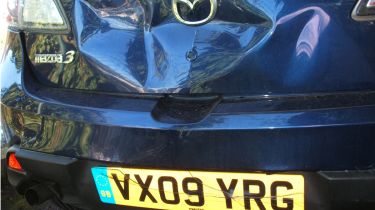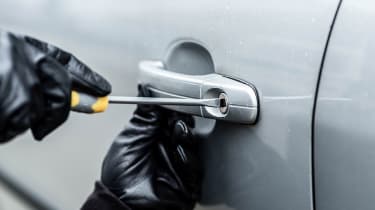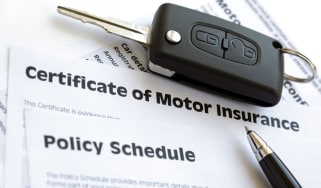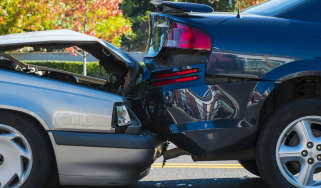How to get cheaper car insurance
Our comprehensive guide to car insurance and how to get the best deal

Getting the cheapest car insurance quote can be a stressful undertaking. Although car insurance price comparison sites make it somewhat easier, the process can still be long and time consuming, and with some insurance companies you’ll have to make direct contact to get the full picture.
Many factors determine the cost of your car insurance policy. Some of these are non-negotiable, such as your age or where you live, and while not everyone is in the position to buy a cheaper-to-insure car, there are other things you can do to get a cheaper insurance quote.
 UK car insurance groups explained
UK car insurance groups explained
It’s worth keeping a close eye on the amount of miles you do in your car, its value and where you plan to keep it, because a degree of flexibility in these areas could help lower costs. Do you have a garage you’re not using? Are you travelling less miles annually than you realise? Is your car worth less than you’d thought?
If this is the case, changing the details to reflect these facts could reduce costs – counter-intuitively, sometimes even increasing your stated mileage to a more realistic average amount could even bring down costs down, so it’s worth playing about with this on comparison sites.
Generally, though, your insurance quote is essentially about three simple things: you, your car and the types of policy available. For insurance companies it’s all about the risk involved in providing your insurance cover. The greater they deem the risk, the more it’ll cost for insurance. Here, we explain all.
Things you can do to reduce your insurance bill
Making tweaks here and there can reduce your car insurance bills. One of the most significant is your insurance excess. This is an amount up to which you agree to pay in the event of a claim.
For example, if your excess is £250 and you make a claim for £750 worth of damage, you’ll pay £250 and the insurance company will contribute £500. If less than £250 worth of damage was done, you’d have to foot the whole bill.
If you’re happy to risk having to pay for minor damage in the unlikely event of a claim, then a larger insurance excess is a good way of reducing your premium. But you could end up in a sticky financial situation if you put yourself at risk of a big bill that you know you won’t be able to afford.
Other factors to consider include:
- If possible, pay for your cover annually rather than monthly – the savings can be substantial
- Go for a black box insurance policy – if you’re confident your driving style is safe enough, these devices send data about your driving habits and location to the insurer, which could save you money by proving you are a careful driver
- Look at the cost of optional extras – how much is your insurance company charging you for breakdown and replacement windscreen cover? Is it competitive?
- Do you need a protected no-claims bonus? While this means you won’t lose your no-claims bonus after a claim, your premiums are still likely to increase
- If you’re considering fitting an alarm or tracker to your car, make sure it meets the Thatcham industry standard
- Do you need that courtesy car cover? If your car is being repaired, do you have a second car you could use, or one you could borrow?
- Some companies offer a discount if you use their home insurance or insure all the cars in your household with the same provider
- Check price-comparison websites before automatically renewing, then see if your existing provider can match or beat the best offer. If they can’t, consider switching
- If you drive a much older car, you may be eligible for a classic car insurance policy, which can be much cheaper than conventional policies
- Are you part of a car club? Joining a car club can dramatically reduce your premium as insurers assume you might take better care of your car, or are more likely to carry out repairs through personal contacts at a reduced cost
How is car insurance calculated?
Clearly, you won’t be able to do anything about factors such as your age, and maybe not even your career, but your driving history will play a major part.
This is because your insurance company will look at risk factors associated with you as a person.
In the past, it was often the case that female drivers benefitted from cheaper car insurance on average, as they were deemed safer drivers. However, from 2012, the EU ruled that gender should no longer affect insurance prices. Although this meant generally the same or cheaper premiums for men, some women have seen the cost of their insurance policies rise as a result.
How old you are
Your age plays a huge part in how insurance companies calculate risk. Statistically, younger and inexperienced drivers are more likely to make a claim – so their insurance cover will cost more as a result.
For younger drivers, the age ‘penalty’ is compounded by a lack of no-claims bonus (NCB). The only way around this is to rack up year after year of claim-free motoring.
 Black box car insurance: pros, cons, rules and how young drivers can save
Black box car insurance: pros, cons, rules and how young drivers can save
Broadly speaking, the birthdays you need to look out for are your 25th (when insurance providers think you’ve become sensible and start reducing premiums) and your 70th (when companies begin to consider physical issues like your reaction times and eyesight).
Long-term medical conditions could also mean you’ll pay more than someone with a clean bill of health. Several years’ no-claims bonus (where you haven’t claimed from a car insurance policy) will also help to lower your premium significantly – although you have to ask your previous insurer(s) to provide your new insurer with proof of this.
Your driving history
Insurance companies reward careful drivers in two ways. Firstly, any endorsements or ‘points’ you have on your driving licence will increase your premium.
Secondly, it comes down to the all-important no-claims bonus. By not making any claims, your no-claims bonus will increase. The value of (or discount applied to) your no-claims bonus will vary from one insurer to another, but generally speaking it’ll be a 30-40% discount in the first year, with smaller discounts applied for subsequent years.
You must declare any previous claims or points on your license when getting quotes – otherwise the resulting policy will be invalid.
What you do for a living
You might be a careful and conscientious driver, but if you happen to follow a career that’s statistically high-risk, you’ll still end up paying more.
A sales rep travelling tens of thousands of miles a year will usually have a higher insurance premium than someone the same age with a job that doesn’t involve as much driving.
Similarly, musicians, actors and others involved in the arts can expect heftier bills, as insurers expect these people to work more late hours and have a more active social life than, say, an actuary.
Jobs considered ‘stressful’ or ‘demanding’ also result in higher premiums. Some parents who give up work to raise children find their premiums going up. This may seem strange, but driving with a toddler in full-on meltdown has been known to make even the smoothest driver somewhat stressed.
Where you live
Where you live and where your car is left overnight pays a huge part in determining insurance premiums. Risk is based partly on postcode – areas with a high crime rate will pay more.
Here’s where it gets more complicated. You might think that keeping your car in a garage will reduce your premium, as you’re less likely to experience theft or vandalism. But the reality is the difference between what you’ll pay to house your car in a garage and on your driveway is often marginal. That’s because big cars and small garages can so easily result in scraped bodywork.
And while you might think parking on your driveway will protect your car from parking scrapes, it could increase the risk of theft. That’s because anyone who wants to take your car by stealing the keys will know exactly what house to break into to find them.
All that adds up to making where you live more important than where you park.
Your car
If you can afford that brand-new Ferrari, chances are you won’t be too concerned about shelling out a few thousand a year for cover. For the rest of us, insurance costs can have a pronounced affect on what car we choose.
Before you buy a new car, it’s worth getting a quote from your existing insurer (as well as checking out price-comparison websites) to see how much the motor you’ve got your eye on will cost you to insure compared to the one you’re driving right now.
Car insurance groups
All cars are assigned an insurance group from 1-50. The higher the group, the more expensive your car is to insure. All Ferraris fall into group 50, for example, but a Ford Fiesta can be as low as group three depending on what engine and specification you go for.
A number of variables concerning your car affect the group it’s assigned to and the premium you pay.
Your car’s performance
The most obvious factor affecting premiums is your car’s performance. Faster cars are seen as a greater risk for two reasons: cars do more damage when travelling at higher speeds, and speed also increases the chance of having a crash in the first place.
Insurance companies may consider that if you buy a car capable of 0-62mph in three seconds, you may use that performance on occasion, making you a riskier proposition. Any aftermarket modifications made to your car also need to be declared. If your car has been heavily altered (a non-standard engine change, for example) you may need to look to specialist insurance companies.
Your car’s security

Broadly speaking, the harder your car is to steal, the cheaper it’ll be to insure. Most modern cars come with an alarm and immobiliser that meet industry standards. Fitting these to older cars can reduce your premium while also providing peace of mind. Owners of more expensive cars should consider fitting a tracking system to their vehicle – some insurance companies actually insist on this for cars over a certain value.
Your car’s repair bills
The cost of repairing your car if it’s damaged also affects what you pay to insure it. The more equipment your car comes with, the higher your premium is likely to be. Furthermore, some cars’ parts are more expensive than others and some models take more time in the garage to repair. Just consider Rowan Atkinson’s McLaren F1, which incurred a record-breaking insurance payout of £910,000 when he pranged it in 2013. Insurance companies look at these repair costs when calculating your premium.
Types of insurance
Unless you’re a motor trader or work in the industry, there are three main types of insurance: third-party only; third-party, fire and theft; and fully comprehensive.
Third-party only
Sometimes referred to as TPO, this is the minimum level of cover you legally need to drive a car in the UK and it tends to be the cheapest – but not by much.
 Top 10 best cheap cars to insure
Top 10 best cheap cars to insure
If you’re involved in a crash, the insurance company will pay for damage caused to other vehicles or property, along with compensation and medical costs for anyone other than you who’s injured. It’ll also cover legal costs if anyone takes legal action against you as a result of the collision. But if your car catches fire or is stolen, you get nothing.
Third-party, fire and theft
Third-party, fire and theft cover (sometimes referred to as TPFT) is marginally more expensive, but it means you’re covered if your car catches fire or is stolen. But it doesn’t cover damage to your car in a crash where no other vehicles are involved – hitting a tree, wall or lamp-post, for example.
Fully comprehensive
Although fully comprehensive car insurance is the most expensive cover, you may be surprised to see the increase is often marginal over third-party, fire and theft.
It generally provides the best cover. If your car is stolen or catches fire, you’ll receive a payout. If you’re involved in a collision – whether you’re at fault or not – you, your car and any other vehicles, individuals or property involved are covered for legal, medical and repair bills.
Many fully comprehensive policies also cover you to drive someone else’s car (with their permission), but you’ll need to check this to make sure.
Keep your insurer up to date
Many overlook the need to inform their insurance provider about significant life changes. Moving house, having children, changing careers, getting married or divorced, developing a long-term medical condition or getting points on your licence are all things you need to inform your insurance provider about –your policy could be invalid if you don’t. Having an insurance claim refused could cost you not only at the time of the incident, but also when you try to take out a future policy, with insurers considering you potentially fraudulent.
Although it’s a complicated business that nobody really looks forward to, taking out a car insurance policy doesn’t need to be laborious and should take you no more than an hour. The internet makes getting the best deal much easier than it used to be, and knowing what to think about when shopping around should ensure you find the policy you need at a competitive price.
Armed with this information, now find what the best car insurance providers are, and see our list of the 10 best cars for new drivers.
Recommended

What are Vehicle Risk Ratings? UK's new car insurance groups explained

Cat S and Cat N cars explained: guide to buying an insurance write-off
Most Popular

New Smart #5 Brabus is a 637bhp far cry from the brand’s city car past

Best car leasing deals 2025: this week’s top PCH offers
Tips & advice

Car dashboard warning lights: what does each symbol mean?

Electric car charging stations: public networks, charger types, apps and maps








